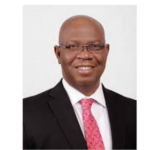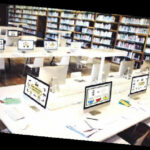
A don, Dr Chioma Okonkwo, has said that Science, Technology, Engineering, and Mathematics can be quite challenging, but they are not impossible.
Okonkwo made the declaration in her virtual presentation on Tuesday, February 14, at the 2023 International Union of Pure and Applied Chemistry Global Women’s Breakfast, which was held at the Faculty of the Social Science lecture theatre, University of Ibadan, Nigeria.
The programme’s goal, attended by 27 secondary schools in Ibadan, the Oyo State capital, was to establish an active network of people of all genders to overcome the barriers to gender equality in science.
The event, which was also part of a project titled, “Low Enrollment in Chemistry and Chemical Sciences in Nigeria,” was funded by the Royal Society of Chemistry, in the United Kingdom.
A Fellow of RSC, Dr Adebola Adeyi, was the Convener and Project Coordinator with project partners in Germany and the United Kingdom.
Speaking on this year’s theme, ‘Breaking Barriers in Science,’ Okonkwo urged young girls not to give in to the myths about STEM, adding that both men and women have equal potential to excel in STEM programmes and careers.
The convener, who is an Associate Professor of Analytical and Environmental Chemistry at UI, Adeyi, while delivering her paper on ‘Environmental Sustainability and Climate Change’, co-authored with Dr Babafemi Babalola, noted that a sustainable environment could only be achieved by taking care of the environment to achieve the United Nations’ Sustainable Agenda.
Adeyi said that a balance must be struck between economic growth, environmental care, and social well-being, maintaining that pollution could be prevented by taking measures for environmentally safer manufacturing.
In his virtual presentation at the event, Dr Taiwo Fagbemigun of George-August University, Gottingen, Germany, said STEM education provided practical skills for students to succeed in entrepreneurial, and everyday life, adding that “nowadays, most careers require some amount of knowledge in science, technology, and engineering.”
According to Fagbemigun, STEM education transcended school subjects, noting that the problems facing the world could be solved through STEM education.
Also in her virtual presentation, Dr Hellen Onyeaka of the University of Birmingham, United Kingdom, identified the need to increase initiatives that would encourage and support girls’ participation in science.
According to Onyeaka, such initiatives include outreach programmes for girls in Nigeria, and providing scholarships and fellowships for girls interested in STEM subjects or fields.
While making her presentation on ‘Gender Equality’ at the occasion, Prof. Olapeju Aiyelaagbe of the Chemistry Department of the University of Ibadan, said gender equality was a pre-condition for all other SGD goals, adding that gender equality remained the key to breaking the barriers in science.
A Senior Lecturer at the Chemistry Department of the University of Ibadan, Dr Abimbola Olatunde, Nigeria, whose paper focused on ‘Careers in Chemistry’, highlighted Cosmetic Science, Food Technology, Environmental Law, Pharmaceutical Sciences, among others, as careers for Chemistry graduates.
Also, a Principal Medical Health Officer, at the University of Ibadan Health Services, Dr Alero Adegbolagun, while speaking on ‘Mental Health,’ asserted that the consumption of cannabis increased the risk of psychosis, adding that anyone who felt that life was no longer meaningful, should seek a genuine friend’s help.





